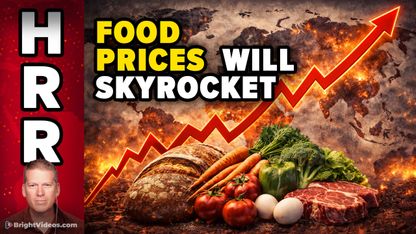
According to the CDC's guidance, it recommends one additional dose of the COVID-19 vaccine following the first booster for around seven million American adults. These people are immune-compromised, including people with diseases like advanced HIV, people taking immune-suppressing drugs and people with cancer.
The CDC claims this is necessary because of their status as people who are significantly more vulnerable to COVID-19 infection and death. The agency's studies show that patients with compromised immune systems did not have a full antibody response against COVID-19 even with two or three doses of the vaccine.
For the rest of the country, the CDC's recommendations remain the same for now.
The CDC first made this recommendation in Oct. 2021. Since then, CDC spokesperson Kristen Nordlund said the agency has been working with pharmacists and health providers to educate them of the supposed need to give immunocompromised people the additional booster.
On Wednesday, the CDC held a conference call with pharmacists from all over the country to berate them for turning away patients and refusing to give them the experimental and deadly COVID-19 vaccines.
Mitchel Rothholz, chief of governance and state affiliates for the American Pharmacists Association, said CDC officials "reiterated the recommendations, running through case examples."
Rothholz was asked to prepare a document "that clearly laid out the recommendations" so that the CDC can "clearly and consistently communicate" the agency's message to pharmacists who refuse to accommodate immunocompromised patients looking to get a fourth vaccine dose.
The CDC was supported by the administration of President Joe Biden. "Immune-compromised people should get the shots they need," wrote White House Chief of Staff Ronald Klain. "[The CDC] is going to send stronger messages to pharmacies to make sure this happens." (Related: You're never "fully" vaccinated: CDC announced changes on how they call those vaccinated against COVID-19.)
Pharmacy executives hunting down pharmacists refusing to give fourth vaccine dose
Matt Blanchette, a spokesperson for pharmacy chain CVS Health, said in a statement that the company is continuing its process of "educating" its pharmacists and reinforcing the need to obey the CDC's guidance on fourth doses "to address any confusion about eligibility."
A spokesperson for Walgreens, America's second-largest pharmacy chain, wrote that it has already administered thousands of fourth doses to immunocompromised Americans.
"As vaccination guidelines continue to evolve, we make every effort to continuously update our pharmacy teams," wrote the spokesperson.
Dana Ward, a spokeswoman for Acme Markets, a supermarket chain with stores in six states, said in a statement that the company is looking into every single incident of pharmacists turning away potential fourth vaccine recipients.
"We can confirm that our pharmacies have followed CDC guidance and … are administering fourth doses to immunocompromised patients who received their third COVID vaccine more than five months ago," she wrote.
Others are trying to tone down the incidence of people being turned away for a fourth shot. Rothholz said he does not know of any provider who wants to turn away people looking for a fourth dose of the vaccine. He believes people who mistakenly turn people away are simply confused.
"The CDC continues to make updates, and it's becoming very difficult for providers at the grassroots level to keep up," he said. "I can understand why a pharmacist would say, 'Corporate hasn't given us the green light.'"
He added that there is definitely confusion about who is eligible for a fourth dose of the vaccine, which explains why some pharmacists are hesitant to give patients a fourth dose.
More related stories:
Fauci claims fourth COVID dose is "entirely conceivable."
NY Times admits covid "booster" shots damage immunity, leave body defenseless against virus.
Watch this video to learn about a study coming out of Israel that shows that a fourth dose of the COVID-19 vaccine is "not good enough" against the virus.
This video can be found on the channel What Is Happening on Brighteon.com.
Learn more about the resistance to COVID-19 vaccines at VaccineWars.com.
Sources include:
Please contact us for more information.






















